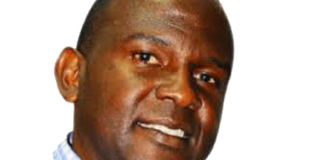To boycott or not to boycott elections is the big question?

What you need to know:
Legitimises the NRM. I think the Opposition with all its weaknesses (and they are many), has done a lot in checking and exposing the NRM. Taking part in an election legitimises the NRM, which is bad enough. Keeping away, risks putting the genuine Opposition (and the known pretenders too, to permanent sleep).
Should or will the Opposition stay away from the 2021 election as is being mooted in certain circles because the playing field or is it the battle field is intolerably slanted in favour of the ruling NRM party? Well, this is not the first time we are being treated to this noble suggestion ever since national elections were first held in the times of the NRM.
From way back in 1996 when we had the first shot at it under the so-called Movement System, elections have always been a perilously steep, slippery mountain to climb, for the Opposition. The Electoral Commission, appointed by the President who also is the ruling NRM party candidate, has more often than not acted after the fashion of the Pied Piper and the caller of the tune in the fable. The police, the army, the Judiciary, miscellaneous civil servants, the media, the donors, nose-poking visiting politicians from foreign countries, people posturing as Opposition politicians, but acting as Trojan horses, you name it, have from time to time been accused of giving the ruling NRM an unfair advantage.
But election after election, the Opposition enters the fray grumbling; and still takes part. Then all these ugly scenes come out in different forms. Also 2021 will come and go most probably without genuine electoral reforms and the much needed egalitarian spirit of fairness that satisfies the concerns of the Opposition and common decency. There might be changes, but things will most likely stay the same, especially if the attitude of the security agencies towards the Opposition is anything to go by. Will the Opposition stay away? I am afraid I have my huge doubts.
The reason is that politics in Uganda provides some of the most lucrative benefits for seemingly very little work done. It does not matter if you are in the Opposition or in government. Whether you are the lowest LC official, councillor, LC5 chaiperson, etc, there are freebies legal and otherwise in this thing for you. Besides, in case you are from the Opposition, one may be paid to stand against someone or bought to withdraw, be given another job to let someone stand unopposed in a ring-fenced arrangement.
The culture here is that if you get elected, the allowances are there, the domestic and worldwide paid- for travel for all sorts of reason commonly dabbed as ‘bench marking’ are plenty. You rub shoulders with those accused of not sticking to the rules and a streetwise person may bully them into making all sorts of advantageous considerations. Then you have the ever present donors, who come with huge money bags sponsoring this or that in the name of promoting democracy. The Opposition today, especially parties that are represented in Parliament, benefit from this money.
That is besides the perks that come with leading and whipping the Opposition, chairing and sitting on committees. It all reads like money after money. As such it takes a lot of investment to get onto the gravy train and stay there amid the pressure of those who want to take your place. People have lost precious assets in this vein. Others must hang in there because they still have to recoup their investment. That is a major challenge to a boycott.
Secondly, it is very difficult to have a vacuum that comes with a boycott. There will be many who will use this as an opportunity to put a foot in the door. If you recall after the election of 1996 in which the Opposition under the Inter-Party Forces Cooperation (IPFC) fronted DP president Paul Kawanga Ssemogerere to contest against NRM’s Yoweri Museveni.
The violence in the presidential election forced the DP into a decision not to take part in the Parliamentary elections that followed.
Many ‘new comers’ opposed to the NRM took advantage of the absence of the household names of the DP and offered themselves as candidates to be chosen on ‘individual merit.’ Many of those who stayed away became irrelevant and that was one of the factors that helped Reform Agenda in 2001 and later the FDC in 2006 when they joined the political fray and greatly disadvantaged the DP.
Any decision on boycotting the election is a life and death issue for both the Opposition parties and individuals involved. What if everything is left to the ruling party and life remains the same or becomes even better, will the Opposition ever have a look in?
Hamlet said in the soliloquy in William Shakespeare Hamlet as he contemplates suicide: ‘To be, or not to be, that is the question:
Whether ‘tis nobler in the mind to suffer
The slings and arrows of outrageous fortune, Or to take arms against a sea of troubles
And by opposing end them…’
I think the Opposition with all its weaknesses (and they are many), has done a lot in checking and exposing the NRM. Taking part in an election legitimises the NRM, which is bad enough. Keeping away, risks putting the genuine Opposition (and the known pretenders too, to permanent sleep).
This will bequeath the arena to opportunists (who love to safely fight from within as friendly enemies) to have a field day, which is worse.
Mr Sengoba is a commentator on political and social issues. [email protected].
Twitter:@nsengoba


